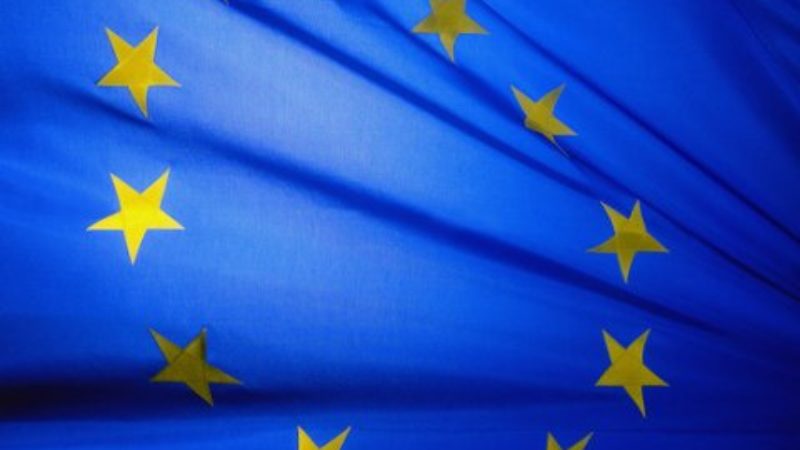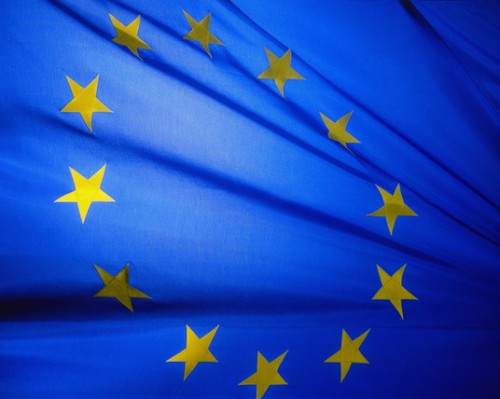
This is the second of two pieces organised by One Nation Register. The first, by Maurice Glasman arguing against the EU, was published yesterday.

At the heart of the EU is political economy. The post-war European project came into existence to resist the three forces that had threatened Europe’s – including Britain’s – peace and prosperity in the preceding century: economic nationalism, the free-market ideology of laissez-faire capitalism, and the state corporatism of the communist, fascist and national-socialist regimes.
Europe’s founding fathers were inspired by classical and Christian ideas more than by secular ideology. They inaugurated cooperation between former enemies in agriculture, coal and steel while also building coalitions among trade unions, businesses and the churches. There was thus a balance of power between the state and the market on the one hand, and the intermediary institutions of civil society on the other hand.
Underpinning this new economic settlement was a substantive conception of the common good based on shared interests. The social market economy that was supported by both Christian and Social Democrats in Germany, France, the Benelux and northern Italy embodied many principles of Catholic Social Thought, such as interpersonal solidarity, real subsidiarity, mutual recognition and the valuing of vocation.
Europe’s recent evolution towards a ‘market-state’ that centralises power, concentrates wealth and commodifies social life was the result of a failure to develop a shared political economy that would extend to the rest of the EU the virtues of the social market model while correcting the vices of French dirigisme and German ordo-liberalism: too much emphasis on state planning and on centralised regulation, and too little emphasis on the social purpose of investment and on trust – not compliance – as the basis of competition.
Germany has preserved many elements of the social market, including worker representation on boards, regional banks, an industrial policy and a vocational labour market. But neither the Christian nor the Social Democrats resisted the neo-liberal takeover of German ordo-liberalism that mutated into the sole pursuit of austerity and price stability, which within the Eurozone produces deflation and depression.
The collapse of state communism and the periodic crises of finance capitalism provided an opportunity to build a political economy that pursues virtue and the common good rather than trying to maximise private happiness or public utility. Instead, the reunified Germany exported its ethics and politics rather than its economy: Kantian morality of context-less duties, Weberian statecraft void of virtue and Bismarckian quasi-military management of citizens through rationalised welfare.
Reinforced by French statism in the traditions of Colbert and the Jacobins, the dominant method of European integration in 1980s and 1990s engendered a Europe that imposes top-down harmonisation with all power to the Commission and the Court of Justice – rather than upholding the mutual recognition of national diversity (with some basic minimum standards) that is negotiated by the member-states. In practice, the EU has put in place a regulatory regime that enforces uniform standards whereas before European directives required some minimal harmonisation of European law and could ban restrictive regulation in some countries that interfere with the four freedoms (people, goods, services and capital).
Just as harmonisation replaced mutualisation, so too centralisation superseded the voluntary association of democratically governed nations. The EU interpretation of the principle of subsidiarity exemplifies this logic: in Article 5 of the EU Treaty and other texts, subsidiarity implies that the Union is obliged to take action wherever it has an advantage in terms of scale or effect. Not only does this invert the burden of proof and raise question over who has the legitimate authority to decide, but it also hollows out the social embedding of the economy.
From the family via intermediary institutions all the way up to the nation, the primacy of the social over the economic is central to Catholic Social Thought and cognate traditions such as guild socialism or one-nation conservatism. As a result of EU legalism and the triumph of procedure over politics, subsidiarity has become an engine of centralisation when it was supposed to be a device for devolving power to people.
However, EU centralism is neither necessary nor inevitable. It was the outcome of contingent political decisions to fuse Anglo-Saxon finance capitalism with continental bureaucratic statism, which successive British governments have taken to new levels. And it is this EU ‘market-state’ – not the European project as a whole – that lacks political direction, economic vitality, social cohesion and civic consent.
Scepticism about reforming the Union is well founded but all-too-often a pretext for disengagement and even fatalism. There is nothing fated about where the EU is today or how it will develop going forward.
Advocates of Brexit assert that the EU is bound ever more to centralise and be dominated by both big business and big government. They cite in support of their argument last year’s report of the five presidents of the EU institutions, which calls for the strengthening of the monetary union by 2025, the creation of a Eurozone treasury and a move to full-blown political union. The pro-Brexit case rests on the claim that this will hijack the whole Union (including non-Euro members such as Britain) and that, unlike national governments, EU power is – and always will be – unaccountable and undemocratic.
However, the five presidents report, far from offering a roadmap to the future, is a relic of a moribund conception of a supranational Europe wherein the European Commission, the Parliament and the Council of Ministers would replace the national executive and legislature. That was Jacques Delors’ vision to which Mrs Thatcher famously said three times Non.
A federal super-state has no mainstream political or popular support in any of the big member-states, not even the Eurozone countries that are unwilling to agree even a banking union – never mind a fiscal or a political union. And let’s not forget that the French and the Dutch comprehensively defeated the Constitutional Treaty in 2005.
Since then power has flown from the supranational level back to the intergovernmental level. Echoing Margaret Thatcher’s 1988 Bruges lecture, the German Chancellor Angela Merkel argued in the same place in 2010 that the future of the EU lies with the ‘union method’ of co-ordinated action by national governments, as opposed to the ‘community method’ of automatic supranationalism favoured by Delors and, before him, Jean Monnet. All the major decisions on Eurozone bailouts and the migration crisis have been taken by Germany and other big member-states.
At the same time, no country has an innate right to lead the EU. France retains military might but her stagnant economy and deeply divided politics highlight the existential crisis that is engulfing the Fifth Republic. Germany is the Union’s economic powerhouse but lacks the means to direct foreign and security matters. Neither country has a global strategic outlook or the same cultural ‘soft power’ as Britain. A more creative UK foreign policy would regard London’s geo-political and geo-economic situation as a vortex of meeting and competing economic, political and cultural forces that provides a springboard for much greater positive influence in Europe and across the globe.
In a European Union of concentric and overlapping circles, the country that might be best-placed to lead is perhaps the least sentimental member with one foot in the EU’s core (trade, foreign, defence and security), one foot in its periphery (outside the Euro and Schengen) and a keen eye on the wider world – Britain. Current economic and demographic trends are reinforcing the UK’s pre-eminent position in Europe. By 2030, Britain will have the largest economy and largest population in the EU, giving it greater power in terms that are both real (representation in the EU institutions) and symbolic.
If Britain does decide to stay in, it has the opportunity to re-engage with the rest of the Union and lead by building new alliances with like-minded member-states such as Germany, Scandinavia, the Low Countries, Central and Eastern Europe as well as Mediterranean members such as Portugal and Italy who are disillusioned with the current drift. All this requires old-fashioned virtues of courage, imagination and leadership.
Over-ambitious? Perhaps, but the alternative is either a permanent paralysis of the EU or else the collapse of the Union and with it the end of the only political expression of Europe’s shared culture. Faced with the threats of terrorism, economic depression in the southern Eurozone and the impact of mass migration, the EU could yet disintegrate. After Brexit, the UK would have much to fear from a messy breakup of the rest of the Union, as it would be swept up into its turbulent wake.
Should the EU survive and muddle through, a Brexit would leave the remaining member-states exposed to a German hegemony that Germany does not want and everybody else fears. Throughout her modern history Britain has acted as a bridge to secure a balance of power and prevent the dominance of any one continental country. No other European state can play this vital role.
Europe is fundamental to Britain’s identity and national interest, but what sort of EU would the UK be part of in case it votes to remain? Britain will be member of a multi-speed union with different destinations, as the deal negotiated by the Prime Minister guarantees a permanent opt-out from ‘ever closer union’. Confronted with existential threats, the EU has little appetite for further integration and enlargement, and there won’t be another 28-member treaty for a generation.
That leaves the vastly imperfect Lisbon Treaty, which nonetheless enshrines as one of its goals the creation of a ‘highly competitive social market economy’ across the EU. Amid the lack of political leadership, Britain together with kindred member-states has a unique opportunity to provide direction and a sense of purpose, started with a shared political economy. This would involve building new coalitions of interest within and between nations in ways that respect the things both Westminster and Brussels elites have dismissed as anachronisms: tradition; a respect for settled ways of life; a sense of local place and belonging; a desire for home and rootedness; the continuity of relationships at work and in one’s neighbourhood.
After 1945, few thought that Europe could see peace, prosperity and partnership between former enemies, but the political project that brought this about has ground to a halt. A vote to stay in offers Britain the chance to reengage with her European partners and lead Europe.
Adrian Pabst is a Senior Lecturer in Politics and the University of Kent.




More from LabourList
‘Labour won’t stop the far right by changing leaders — only by proving what the left can deliver’
‘Cutting Welsh university funding would be economic vandalism, not reform’
Sadiq Khan signals he will stand for a fourth term as London Mayor